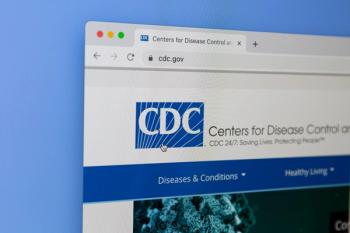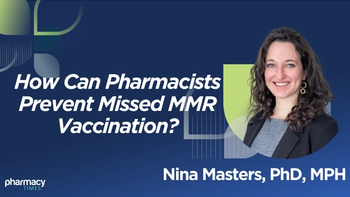
Pharmacy’s Role in Immunizing Adolescents and Children
With consideration of recent COVID-19 vaccine approval in adolescents, Jennifer Adams, PharmD, EdD, discusses pharmacy’s role in immunizing children of all ages.
Episodes in this series

Ed Cohen, PharmD, FAPhA: Seeing that the COVID-19 vaccine has gone under some additional approvals, we’re seeing that it’s now approved. The Pfizer vaccine is approved for adolescents who are at least 12 years of age. Moderna has submitted its addition for its EUA, emergency use authorization, to get approval to expand this ability and provide immunizations to people down to 12 years old. They’re doing studies going down as low as 2 and 3 years of age. In that theme of immunizing children and, of course, assisting in providing those COVID-19 vaccines as well, is pharmacy ready to immunize children of all ages?
Jennifer Adams, PharmD, EdD: I think so. Of course, it depends on your state and what you’ve been able to do prior to the pandemic—whether you have experience with this or not—but we have this great opportunity. As you said, Pfizer has had the emergency use authorization down to age 12 since May [2021]. Moderna has submitted for emergency use authorization, which it hasn’t received, but hopefully it will receive it soon. That will provide even greater access. Of course, the timelines that I’ve been observing look toward fall and the September-October time frame for when we’ll be able to get emergency use authorization for all the way down to 6 months of age. We’re going to have a great opportunity, not just for adolescents but also for the little ones.
That brings on new challenges. As a mom, I was ready to go get my vaccine as soon as I could. But for my little one, I think, “What I experienced—in terms of adverse effects—is my 2½-year-old going to feel flu-like symptoms, as I did, for 24 hours?” As a mom, I think about that differently for my child from how I do for myself. I can handle that. No problem. I can manage symptoms for 24 hours. It’s a little different with a 2½-year-old. We have to be able to understand those parental concerns. We have to have compassion when we talk that through. Those 24 hours of flu-like symptoms for my 2½-year-old is a lot better than her being hospitalized for COVID-19. I can rationalize that. How do we have those conversations with parents, from a place of compassion? Whether somebody is hesitant or not, they want to do what’s best for their child. They want their kids to have the absolute best. I don’t know any parent who doesn’t. We have to think about those conversations and how we have those conversations.
I also think there needs to be major public health efforts. I’m working on a project with the Idaho Immunization Coalition looking at maternal immunizations—because it starts as early as those prenatal immunizations that we encourage moms to get. We know that moms who get their flu vaccine and their Tdap [tetanus, diphtheria, pertussis] in pregnancy are more likely to adhere to the administration routines and schedules for their kids. Looking and thinking about that, there are opportunities along the way. They’re not easy, but as a profession, we’re uniquely qualified to have those conversations. We train our students in motivational interviewing techniques. We train our students to listen to their patients, to hear their concerns, and to help patients sort through the hesitancy they might have. We’re uniquely qualified—in that way—with the patient counseling and the motivational interviewing training that we provide our students and the pharmacists who have received that training. We’re uniquely qualified to tackle this challenge.
We’re going to have to partner with pediatricians. This is a major part of business for pediatricians. I’m certain, at least in my pediatrician’s office, they’re like, “OK, how do we manage this volume of patients?” That’s where we, as pharmacies, can step in and say, “Let us help you manage the volume. We don’t want to take away all your business, but we want to help you manage the volume of patients as we come out of the pandemic. We want to help you manage the volume with COVID-19. Let’s partner on this, not compete.” That’s an important part of the message when it comes to kids, because if we don’t get the pediatrician community involved and behind us in partnering on this, we may end up having competing efforts. That’s not what’s best for any of our communities.
Transcript edited for clarity.
Newsletter
Stay informed on drug updates, treatment guidelines, and pharmacy practice trends—subscribe to Pharmacy Times for weekly clinical insights.
































